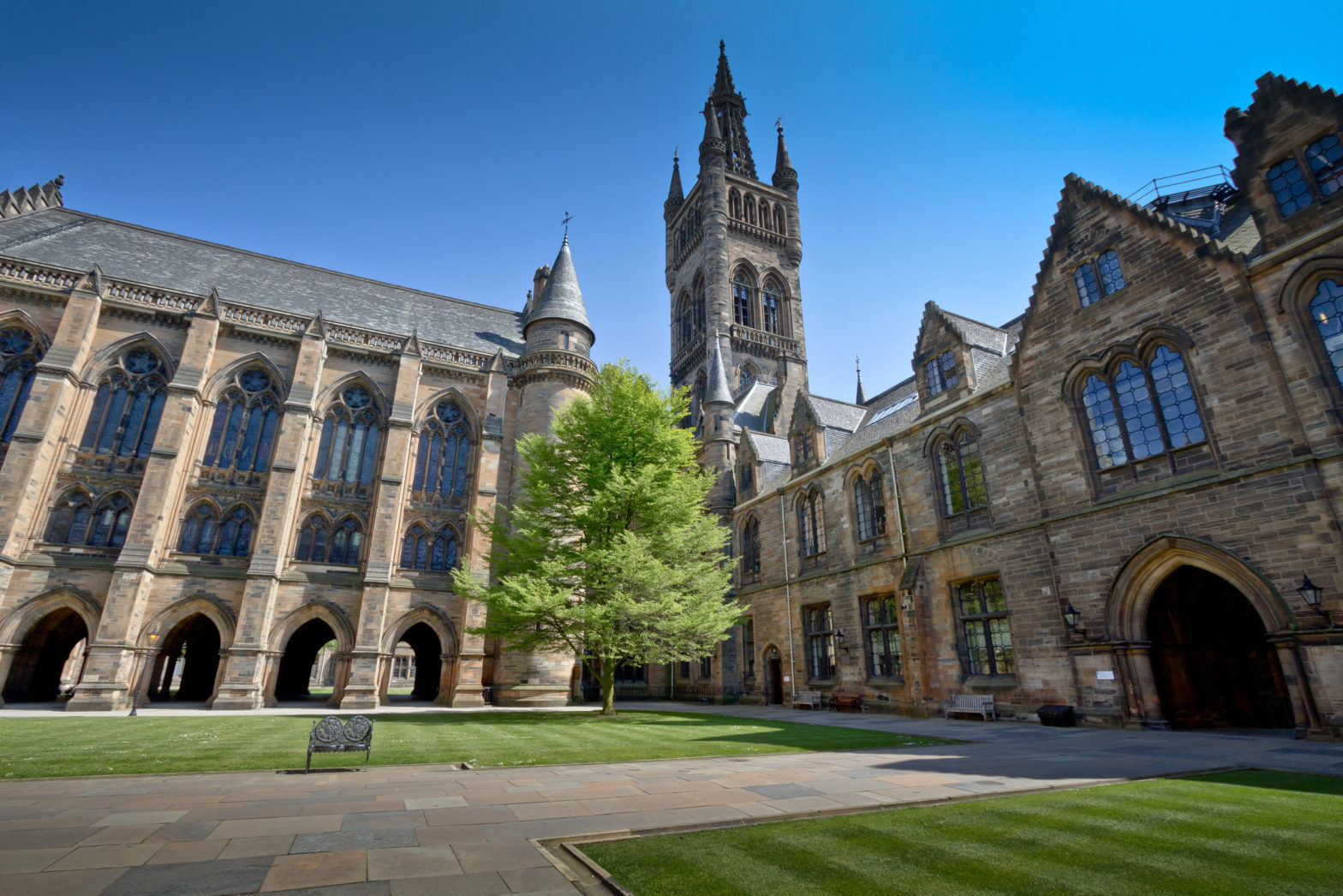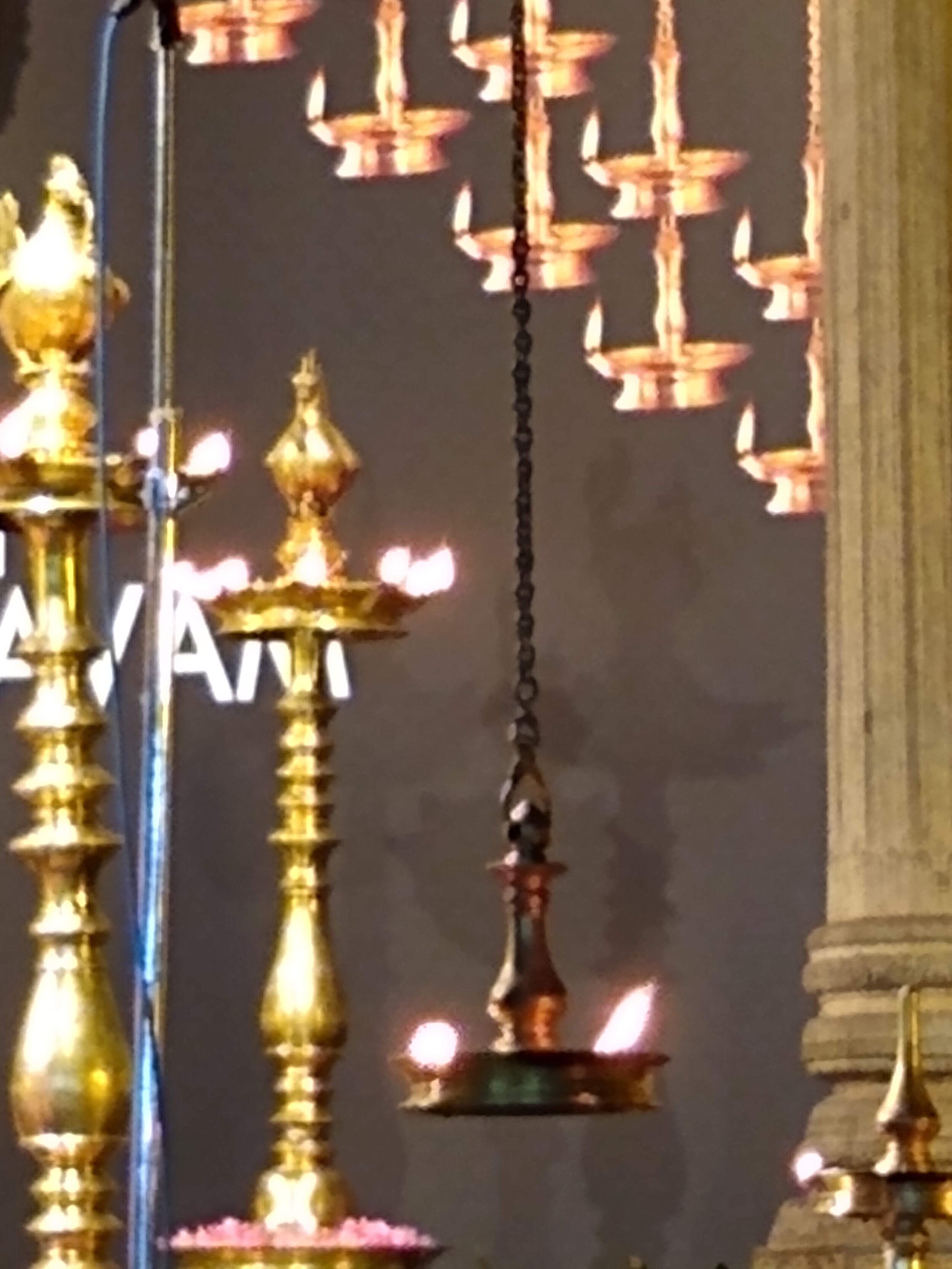Imagine yourself standing under a waterfall. Think of how much water you can really drink while standing under this waterfall – not much, right? You are probably limited to what you can drink while you stick your tongue out or maybe from your folded palms. While you take these small sips, tons of water falls over you, around you and washes away endlessly.
We experienced this state of overwhelm mixed with ecstasy, on day one of our learning with a person that we respect immensely, Sri. PDK Rao. Dr. Rao or guruvu garu (respected teacher) as almost everyone here calls him, has a very interesting life story, more on that later. What we’d first like to share is the organizational capability that he and his team have built in this remote location and the impact their work is having globally.
You’ll have zoom in quite a bit on Google Maps to find Cheepurupalli. It used to be a hamlet, is now a mandal headquarters (county seat) and as with most places in India these days, is experiencing the effects of globalization, with urbanization and its associated ills and benefits. It is now a considerable sized town in Viziangaram district of the state of Andhra Pradesh.
First, the people. Very polite, friendly, down-to-earth. We experienced warm affection from everyone that we met, but it is a biased sample since we were in the warm embrace of the organization the whole day. The simplicity of the people has captured our hearts. The lilting accented Telugu that the east coast is known for; the way they address each other as if they were each related by family ties; the straight-forward pushiness of a couple of outspoken older women; the demure way some young women communicated with people higher in the societal hierarchy; the way these same young women cut up and joshed each other when amongst themselves – all these impressed themselves upon us. For the most part, in public at least, men were courteous to women and most women were self sufficient and spoke up for themselves.
Then, the organization, Sodhana. While Dr. Rao is the central figure (as may be expected), we got the sense that people in the various roles were trained and confident enough to execute their functions – and to an extent, make field decisions – on their own. A lot of the core team has been in place since mid-1990s, thus have built the skills and confidence needed to execute on the organization’s mission. First impression is that there is in-built capacity and leadership.
Sodhana, a nonprofit trust has been in existence for 36 years. Their sphere of influence is considerable, since their caring and service has been considerable. Their programs and services span women Self Help Groups (SHGs), pre-school enrichment (bala badi), primary education (supplementation of trained staff in grades 1 and 2) and recently, health clinics and follow-up visits by a family practice physician geared towards enhancing the health of women and children in rural areas.
What we did Day One:
-
The day started with meeting Dr. Rao and his core team. We (re-) learned the history of the organization and some core guiding principles. The team then sang songs accompanied only by a simple hand drum (percussion instrument kanjeera);
-
After a simple, tasty and nourishing lunch, a group of 27 trained teaching assistants came in. They assist teachers in grades 1 and 2 in government schools – thus ensuring: (1) that the children that graduated from the pre-primary bala badis run by Sodhana continue to thrive in the government school system; (2) that the fun-based learning that Sodhana developed reaches students that have not been part of the bala badi system; and (3) over-worked teachers in the government school system have a trained colleague to share the important task of bringing out confident youngsters;
-
In the evening, we went to the Health Camp in the village of Purrreyavalasa; and
-
After dinner, we had time to listen to Dr. Rao and Dr. Harish (the physician).
Learnings on Day One:
In keeping with the metaphor of trying to drink water while under a waterfall, we were inundated with many bits of wisdom, of thought process that goes into building an effective organization, motivational skills, teamwork, grassroots activism and so on. There were many insights into human interactions. Many glimpses of fun, smiles and occasional bursts of loud laughter. Moments of being inspired as thirty voices joined in a rousing song with uplifting lyrics.
-
> If you want to serve, keep your mouth shut and listen to the people for 100 days [thus wrote Viobha Bhave to Dr. PDK Rao, on a slate (since he was observing silence, mouna vrata, during Dr. Rao’s first year, when he was exploring India to get a sense for the people’s needs]
-
> Look for “felt need” and then prioritize [i.e. identify real needs and then solve them in order of priority, instead of having a solution in hand and then searching for a problem that fits the pre-existing solution]
-
> Development always leads to the disturbance of status quo [This makes sense and seems obvious. And it is true even in the act of building muscles or habits. But in the social sector, this simple maxim allows us to go in with our eyes open that any act that we contemplate will meet resistance from those that are happy with the current situation. i.e. those that benefit from the status quo will quite naturally be in opposition to any acts that seek to change it. Hey, this is Newton’s Third Law!]
-
> Law of Unintended Consequences pops up everywhere. When the Government gave land to the landless poor, by a stroke of a pen, they transformed a (often bonded or slave) laborer into a landowner. But, without the management skills that are needed for this new role.
-
> Another way of saying this is: “they changed the hardware without changing the software”. This is a major problem with the Development field. Another example: Toilets were built in villages but: (a) there was no thought given to adequate supply of water to these toilets; (2) nor was there adequate education on why toilets needed to be used versus the age-old practice of open defacation.
-
> HRD (Human Resource Development): using local talent is key. Almost all of the core team of Sodhana were recruited while they were students, mostly at the college level (either junior college or degree college).
-
> Hard timelines don’t work. A particular land dispute took 7 years to be resolved.
-
> Thrift groups (podhupu sanghaalu) are a source of pride and empowerment
-
> Don’t dilute quality.
-
> No turf wars
-
> No patents. “[We’re] Happy to share how pre-school works, you’re welcome to go start your own”
-
> “I had to prepare myself: inner preparation. “Naakendhukee gola, haayigaa undochhunu kadda” anipinchachchu (If you let it, there is a chance for the thought to creep in, that says, why should I bother with any of this (as the work gets frustrating or does not yield quick results), I could just chuck this and go live a life of comfort elsewhere).
-
> As we go along, if there is not also a concept of “I’m learning and growing”, instead if we think of this as work that only benefits “others” or “the people”, then it is not sustainable, then there will certainly be burnout.
-
> KEY: “I too have needs. I’m equally important”. Know thyself and value thyself. Don’t be a kovvotthi (a candle. ie. don’t attempt be so selfless that you are consumed and burnt out in the process – its not sustainable or healthy).
-
> “I can’t pretend poverty”. I can’t (for example) go live in a hut, to emulate those that I seek to serve. If I did, it would obviously be fake. Plus, I could up and leave any time, can he, that has no such choice, whose life it is, to live in that hut?
-
> Team management and team building: recognize that each team member comes a different background (compared to the leader) and that their needs and aspirations are different.
-
> Dr. Rao does not believe in “community service, 24 x 7. ie. carve out time for oneself, to pursue other interests, to rejuvenate, to have a life!
-
> There is nothing that is non-threatening in Development work. Also, it is intellectually challenging and psychologically satisfying.
-
> Don’t expect Utopia.
-
> Prepare to handle conflicts – even among the team.
-
> KEY: Lifestyle of the servant leader: Not too ostentatious, yet not too artificially poor
-
> KEY: Human relationships.
-
KEY: Financial transparency. In 30 years, Sodhana has never missed the July 30th deadline for filing their audited tax returns.
-
> NGO + Government partnership: be wary! Political leaders suddenly become stakeholders. They may change their priorities and yank the funding. Or, there may on occasion be a corrupt political leader. Also, Government employees (IAS officers etc) that may be very motivated and helpful may be transferred or fired. But, when the funding disappears, the people (beneficiaries) still expect the promises to be kept and the NGO’s credibility (its greatest asset) is at stake. THEREFORE, NGOs should enter into partnerships on Government programs ONLY IF they can fund it independently EVEN IF the funding is withdrawn.
-
> Cultural dimensions are essential to any movement. Such [songs] have to be both entertaining and educational.
-
> In answer to a follow up question on how to determine the “felt need” or identify a demand for services: The group had multiple discussions. He was totally patient till they feel that the idea was their own. These discussions were not time-driven, neither were they goal-driven.
-
> KEY: “We’re not tape recorders, we teach concepts”. This was Dr. Rao’s admonition to a teacher. The teacher was saying (arguing?) that a particular item being discussed, that he was not presenting effectively, was not in the syllabus of either the 1st or 2nd grades, which he taught. The point is that we teach the children and have them do it. The KEY is to ELIMINATE THE FEAR OF MATH in the child. Math and English were the two subjects that children failed eventually, at the tenth grade level.
-
> In teaching English, start by assuring the students that they do indeed already know English. Start with common words such as bus, car, doctor… Then identify body parts in both English and Telugu (or whatever local language): head tala, skin chermamu.
-
> Introduce nouns by using one or more of these three items: 1. Nija vasthuvu (the real object); 2. chitramu (an image or picture of the object); and 3. bomma (a toy or 3D representation of the object). For example, when introducing the noun, Elephant, it is only possible in the classroom to use two methods, #2 and #3. Whereas, when introducing the noun, Banana, it may be possible to use all three methods.
-
> Introduce verbs by action. For example, physically run or jump in place, when introducing those two verbs.
-
> Then build into simple sentences: I drink water.
-
> Self confidence in student: build by [the teacher] gives an erroneous answer on purpose and the student has the confidence to correct the teacher.
-
> QUESTION AUTHORITY: develops self confidence. The teacher is in a position of authority in the classroom. Dr. Rao is in a position of authority in Sodhana. They should be questioned. When I asked for an example of the staff questioning the authority of Dr. Rao, Sri. Naidu gave us a concrete, recent example.
-
> The teacher is encouraged to say “I don’t know, let me (us) find out” rather than giving a fake answer.
-
> In Telugu, there are three words for the English word “Teacher”. 1. Upadhyayudu: kalasi koorchune vaadu – nela meedha pillalatho paatugaa koorchovaali. The teacher sits alongside the student, as an equal. 2. Adhyaapakudu: Adhyayanamu chesina vaadu. The teacher has mastered the concept and 3. Acharyudu: Aacharana chesina vaadu. The teacher has lived the lesson that is being taught and is therefore worthy of being listened to.
-
> “Badi intiki velthundhi, Illu badiki vasthundhi”. The school travels home, the home travels to the school. i.e. The child carries home all that they have learned, what the teacher has done, worn, said that day. And on the other hand, the home environment influences what the child does at school. i.e. school and home are inseparable, the child is influenced by both. i.e. when trying to understand why a child behaves or performs in a certain way, try to understand their home environment. This has led to the practice of teachers visiting the child’s home and meeting the parents and siblings in their natural habitat.
An observation:
By 2:50 PM, they start walking into the room, a Namaste with folded hands and each would find a place to sit on the floor in a circle. By the appointed time too 3 PM when the meeting was to start, 26* of the 27 teaching assistants was in place, seated and ready. They were bantering with each other and there was a relaxed sense of anticipation in the room and the decibel level was rather high. The two of us were seated on plastic chairs at the head of the room. We were clueless as to why all these people walked in, except that we were here to learn. Then, on the dot at 3:00:00 PM, Dr. Rao enters the rook and all are electrified with attention.
*we had a chance to talk more with the 27th teaching assistant at a health camp the next day, where he was the volunteer peer health educator and coordinator. He told us that ever since he received training in basic health procedures, he felt a surge of confidence. He was traveling to the meeting in an auto-rickshaw, when he saw a crowd assembled by the side of the road around a person that was prone on the ground. About twenty bystanders were doing nothing, just staring at the person that fell not he ground. With the confidence borne out of his informal training, he stepped in, took charge, spoke to the crowd in language that they responded to, revived the [‘patient’], identified which village [the patient] was from, called a person from that village and waited till they arrived and took the patient home. That was the reason that he was late to the meeting. Wow!
People that we met included:
[Sri = Mr; Smt = Mrs; Kum = Miss]-
Sri. Bangaru Naidu.
-
Sri. Kamu Naidu
-
Dr. PDK Rao, founder of Sodhana.
-
Sri. Lakshmi Naidu
-
Sri. Ramakrishna (singer)
-
Sri. Kasarayya
-
Sri. Srinivas
-
Sri. Satyanarayana (singer, chukkavaram)
-
Sri. Lakshmi Naidu
-
Sri. Appa Rao (Jr. Accountant)
-
Sri. Appala Naidu (Thrift group Accountant)
-
Sri. Gauri Naidu (artist, great cook, accountant)
-
Dr. Harish, MBBS, Physician
-
27 Teaching Assistants in primary schools (“Volunteer Teachers”)
-
Smt. Ramana (bala badi teacher and health coordinator in training)
-
Smt. Durga (Purreyavalasa bala badi teacher and health coordinator)
Songs that we heard [need lyrics]:
-
Song that celebrated and gave thanks to the universe, to the five elements, pancha boothalaki vandanamu…
-
Gurajada Appa Rao’s Desamunu preminchamanna
-
Gopalakrishna’s Neevidhi vaadam annavu, nenidhi vedham annanu
-
Edhi baalyam?
-
Dasaradhi’s Aa nallani samudra garbhamlo … aa nallani aakaasamlo kaanaraani bhaskarulendharo…
[TODO] - Get a copy of the lyrics to these songs.[TODO] - Write up in a separate post, the observations and learnings from the Health Camps.
At the end of the day, we returned to the motel room physically exhausted, mentally drained, spiritually charged, with a smile that warmed our entire being. Just like this rainbow that appeared on top of the same waterfall that we started our journey with.
[Photo credit: We’re grateful to Deepak Vashisht, for permission to use the photos and video that he made of a waterfall in New Zealand].





Thank you for transporting us into the inspirational presence and words of Dr. PDK Rao and the dedicated workers of Sodhana. All teachers and children of the world have so much to learn from the Mahaanubhaavas in Cheepurupalli.
Thanks for sharing the insights. Possibly you got all the insights a development worker could possibly experience in the course the work. Now you need to live them. Good wishes in your endeavours. Best regards and love.
Presented the events of the day with such minute details that I felt my presence there with the attendees. Thank you , nanna! May your enthusiasm to learn and serve be rewarded!💐